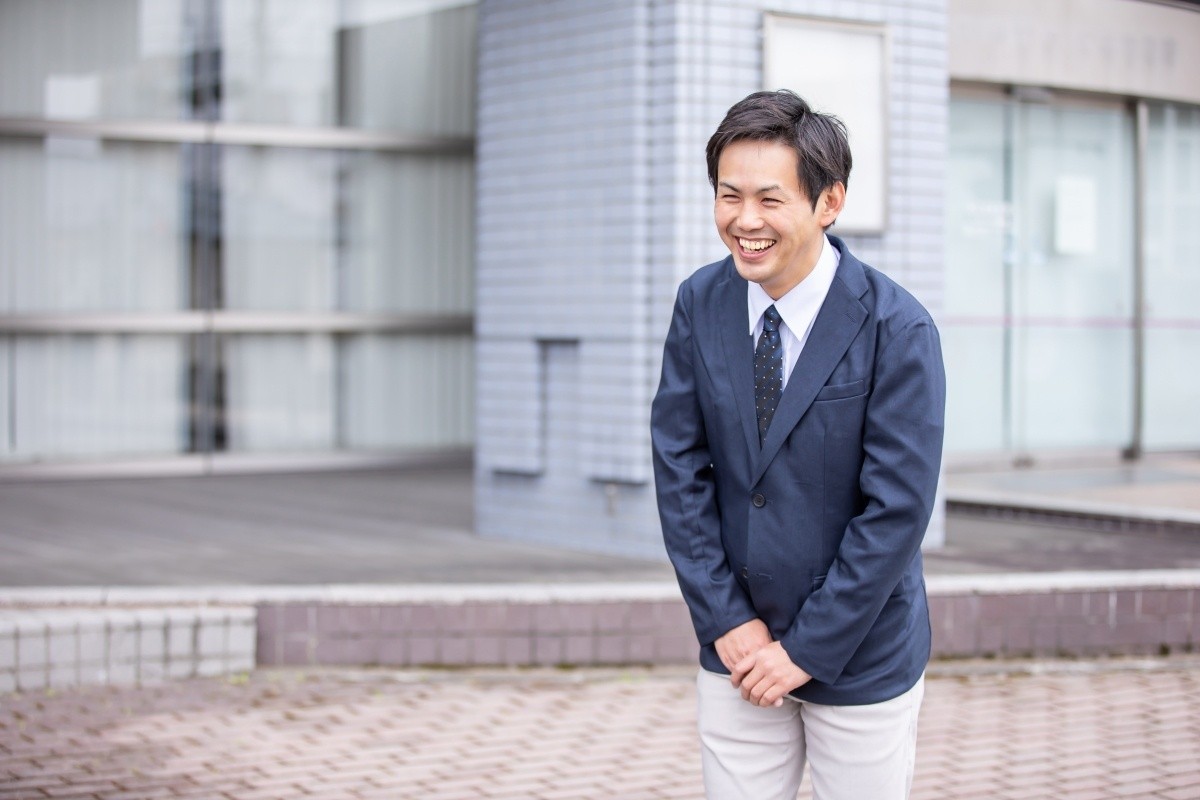
In Japan, the word "Doumo"(どうも) is commonly used in everyday life. The reason for its popularity is its versatility - it can be used as a single word to express gratitude, greetings, and various other meanings. However, due to its convenience, it has multiple meanings, which might be confusing for those not familiar with Japanese. On the other hand, if you can master its usage, it will certainly broaden your conversational range with Japanese speakers.
In this article, we will introduce the various meanings and uses of "Doumo," along with conversation examples! Please try to remember and use them!
What does "Doumo" mean? When to use it?

In everyday Japanese, the word "Doumo" (どうも) has its roots in the phrase "Doumo ienu" (どうも言えぬ), which originally expressed an overwhelming feeling that couldn't be put into words. Over time, this phrase was shortened, and "Doumo" came to be used to emphasize the phrases that followed, such as in "Doumo arigatou" (どうもありがとう, "Thank you very much").
Today, "Doumo" has evolved to cover an even wider range of meanings. One common modern usage is to express gratitude casually by simply saying "Doumo," omitting the "arigatou." While "Doumo arigatou gozaimasu" (どうもありがとうございます) conveys polite and deep gratitude, just saying "Doumo" is much more casual and suited for lighter, everyday situations.
Also, "Doumo" is used as a casual greeting without regard to the time of day, but it is good to remember that the meaning can change depending on the time you use it. For example, when you meet someone in the morning and say "Doumo," it can mean "Good morning." If used during the day, it means "Hello," and after evening, it means "Good evening." Additionally, "Doumo" is used in expressions like "Dou yara" (どうやら), which indicates a vague assumption; "Nantonaku" (なんとなく), which describes a situation where the cause is unclear; and "Doushitemo" (どうしても), which is used when something is unavoidable or unsatisfactory. As long as you are careful with its casual tone, "Doumo" is a very useful word.
How to Write "Doumo" in Hiragana?
"Doumo" is written in hiragana as どうも. Since there is no corresponding kanji for "Doumo," it is written only in hiragana. Although in novels and other literary works, kanji may sometimes be used for "Doumo," these are not used based on meaning but are ateji — kanji assigned based purely on pronunciation. While such ateji can play an important role in building the world within a novel, they differ from the original meaning of "Doumo," so it is best not to use them in everyday situations.
Note: Ateji refers to two practices — assigning kanji purely based on pronunciation, ignoring the original meaning, or assigning kanji purely based on meaning, ignoring the reading.
How to Respond to "Doumo"?

Since "Doumo" can be used in various ways, there are also many different ways to respond. One of the most basic and common ways is simply to reply with "Doumo" as well. There are also other ways to respond depending on what the speaker intends to express. For example, if someone says "Doumo" as a greeting, it’s appropriate to reply with a greeting that fits the time of day. That said, it’s not always easy to know exactly what the other person means, so when in doubt, responding with "Doumo" is usually the safest choice.
On the other hand, if someone says "Doumo" to express thanks or gratitude, it’s better to respond with phrases typically used in reply to "thank you"(ありがとう), such as "Ie ie" (いえいえ, meaning "no problem" or "not at all"). However, because "Doumo" is a casual expression, responding too formally might confuse the other person. Depending on your relationship with them, it’s common to reply with a casual phrase when responding to a "Doumo" that conveys gratitude.
Other Ways to Say "Doumo"
Because "Doumo" can be used in many different ways, there are also many alternative expressions. One example is greetings that vary depending on the time of day. While "Doumo" is convenient because it can be used regardless of the time, it is considered a casual phrase and is commonly used in everyday situations. However, because of its casual nature, it’s best to avoid using "Doumo" when speaking to superiors, elders, or in formal situations such as customer service where a high level of politeness is required.
Also, you need to be careful when using "Doumo" to express gratitude. In situations where using "Doumo" might feel too casual, it’s better to use other phrases like the ones listed below. Additionally, we will introduce even more casual alternatives to "Doumo," as well as other ways to express the meanings of "Doumo" beyond greetings and gratitude.
Other Ways to Say It in Formal Situations
- おはよう (Ohayou) / Meaning of "Good morning"
- おはようございます(Ohayou Gozaimasu)/ Polite way of saying "Good morning"
- こんにちは (Konnichiwa) /Meaning of "Hello" or "Good afternoon"
- こんばんは (Konbanwa) / Meaning of "Good evening"
- すみません (Sumimasen) /Meaning of "Excuse me" or "I'm sorry"
Casual Ways to Say "Doumo"
- ども (Domo)
- どもども (Domo Domo)
- どうもどうも (Doumo Doumo)
- どーも (Doomo)
- どうもです(Doumo Desu)
- やあ (Yaa) /A phrase used to greet someone, equivalent to "Hey" or "Hi"
Various Ways to Use "Doumo"

To master the various meanings of "Doumo," it is important to understand how to use it in different situations. Here, we will introduce a few ways to use it.
Used to Express Deep Gratitude or Apology
- どうもありがとうございます(Doumo arigatou gozaimasu) /A phrase to express gratitude
- どうも失礼いたしました(Doumo shitsurei itashiashita) /A phrase for apology
- どうもすみません (Doumo sumimasen) /A casual apology phrase
- どうも申し訳ございません (Doumo moushiwake gozaimasen) /A polite apology phrase
Used as a Light Greeting
- 昨日はどうも (Kinou ha doumo) /A phrase to express gratitude for yesterday
- どうも、おはようございます (Doumo ohayou gozaimasu) / Morning greeting
- どうも、こんにちは (Doumo konnichiwa / Afternoon greeting
- どうも、こんばんは (Doumo konbanwa) / Evening greeting
Used When Making a Vague Assumption
- どうも、雲行きがあやしい (Doumo Kumoyukiga Ayashii) Meaning: "It looks like the weather is getting suspicious."
- どうも、道を間違えたようだ (Doumo Michiwo Machigaeta Youda) Meaning: "It seems like I’ve taken the wrong path."
- どうも、台風がきそうだ (Doumo Taifuuga Kisouda) Meaning: "It looks like a typhoon is coming."
Used When the Cause is Unknown
- どうも、体調が悪い (Doumo Taichouga Warui) Meaning: "I’m not feeling well."
- どうも、風邪をひいたみたい (Doumo Kazewo Hiita Youda) Meaning: "It seems like I caught a cold."
Used When in an Unsatisfactory Situation
- どうも、理解できない (Doumo Rikai Dekinai) Meaning: "I just can't understand."
- どうも、怒りが抑えきれない (Doumo Ikariga Osaekirenai) Meaning: "I can't control my anger."
- どうも、納得できない (Doumo Nattoku Dekinai) Meaning: "I can't accept this."
Are there regional dialects of "Doumo"?
The word "Doumo," which evolved from "Doumo ienu" during the Meiji era, is a relatively new term, so it is understood in most regions. However, in Toyama Prefecture, expressions like "Doumo, konnichiwa" or "Itsumo doumo" have become rooted in the local dialect as "Maidohaya." Additionally, because "Doumo" can have various meanings, it sometimes functions as a dialect itself. Here are a few examples of regional uses of "Doumo."
"Doumo" as a dialect for "Thank you"
"Doumo" used as a greeting like "Hello"
- Akita Prefecture: どーも (Doomo)
- Fukushima Prefecture: どうもない (Doumonai)
- Niigata Prefecture (Tokamachi City, Minami-Uonuma City, etc.): だんだんどうも(Dandan Doumo)
Other regional dialects of "Doumo"
- Kyoto Prefecture: えろう (Erou) Meaning: very, Doumo
- Okinawa Prefecture: はいさい (Haisai) Meaning: Doumo (a casual way to say hello)
"Doumo" Conversation Example Collection
Here are some simple phrases to use "Doumo" during your visit to Japan.
(1)Conversation When Receiving Warm Hospitality at a Hotel During Illness
A: お加減はいかがですか? (Okagenwa Ikagadesuka) Meaning: "How are you feeling?"
B: すっかり熱も下がりました (Sukkari Netsumo Sagarimashita) Meaning: "The fever has completely gone down."
A: それはなによりでございます (Sorewa Naniyoridesu) Meaning: "That’s a relief."
B: どうもありがとう (Doumo Arigatou) Meaning: "Thank you very much."
(2) Conversation with a Japanese Friend You’ve Become Close With
A: 昨日はどうも (Kinouwa Doumo) Meaning: "Thanks for yesterday."
B: どうも...明日帰国すると思うと寂しい (Doumo... Ashita Kikoku Suruto Omouto Sabishii) Meaning: "Thanks... I feel sad thinking that I'll be going back tomorrow."
A: 私も寂しい。また日本に来てね (Watashimo Sabishii. Mata Nihonni Kitene) Meaning: "I feel the same way. Please come to Japan again."
B: どうもありがとう。また、日本に来るね (Doumo Arigatou Mata Nihonni Kurune) Meaning: "Thank you so much. I'll come to Japan again."
(3)Conversation When It Looks Like It Might Rain During a Trip
A: どうも、雨がふりそうだ (Doumo Amega Furisouda) Meaning: "Looks like it's going to rain."
B: 本当だ、雨具もってる?(Hontouda Amagu Motteru?) Meaning: "Really? Do you have any rain gear?"
A: ううん, 持ってない (Uun Motteinai) Meaning: "No, I don't have."
B: 予備の雨具をもってるから貸してあげる (Yobino Amagu wo Motterukara Kashite Ageru) Meaning: "I have extra rain gear, so I’ll lend you some."
A: どうもありがとう (Doumo Arigatou) Meaning: "Thank you so much."




Comments